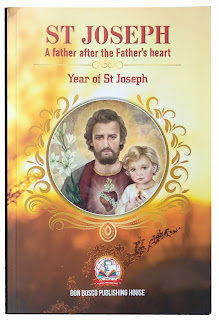Gadamer’s Philosophical Hermeneutics
John Sequeira, “Gadamer’s Philosophical
Hermeneutics”, Divyadaan Journal of Philosophy and Education, 19/1-2 (2008)
143-162.
Vorurteil
(Prejudice) is not a negative term for Gadamer. In fact, he sees it as a
condition for hermeneutic verstehen (understanding). Understanding
begins with a projection of one’s expectations. What one projects is what one
already understands or knows. One tries to impose a meaning that is familiar on
the text and propose it as a possible interpretation. Even before consciously
interpreting a text, one has already placed it in a certain context, approached
it from a certain perspective and conceived of it in a certain way. However, it
must be pointed out that this prejudice ought to be constantly revised in order
to make it possible for one to understand better and reduce the risk of bias.
Although understanding begins with prejudice it
actually takes place only through the interplay of one’s prejudices and the
alterity of the text. "Prejudices are the conditions whereby we experience
something, whereby what we encounter says something to us." (Truth and Method, 133. Henceforward, TM.)
 The interpreter should be willing to integrate the meaning
of the text with her preconceptions/prejudices by bringing them into her consciousness
and making them accommodate what the text reveals. Gadamer remarks, "If we
understand, we understand only in and through the appropriation of prejudice." (TM, 270) Objectivity
in interpretation consists in the confirmation of the pre-understandings on one
hand and the understanding of the content or subject matter on the other hand.
The interpreter should be willing to integrate the meaning
of the text with her preconceptions/prejudices by bringing them into her consciousness
and making them accommodate what the text reveals. Gadamer remarks, "If we
understand, we understand only in and through the appropriation of prejudice." (TM, 270) Objectivity
in interpretation consists in the confirmation of the pre-understandings on one
hand and the understanding of the content or subject matter on the other hand.
Our self-understanding, self-identity, our very
being itself is conditioned by tradition. “Long before we understand ourselves
through the process of self-examination, we understand ourselves in a
self-evident way in the family, society and the state in which we live…that is
why the prejudice of the individual, far more then his judgments, constitute the
historical reality of his being.” (TM, 276)
Tradition offers us a superior perspective on life in general since it is the
cumulative wisdom of the ages, and one is able to reasonably notice and accept
this truth.
Tradition, however, is not to be viewed as something
static or fixed. Gadamer writes, “We produce it (tradition) ourselves in as
much as we understand, participate in the evolution of tradition and hence
further determine it ourselves.” (TM, 293) It is impossible to detach
oneself entirely from tradition. But that begs the question about objectivity
of interpretation. Gadamer answers that understanding is not a purely
subjective experience but an interplay between the text and the interpreter.
Interplay refers to “belongingness (zugenhörigkeit)
to a tradition. When we understand, we are not reconstructing or reproducing
the meaning given by the author, rather we produce meaning anew. Hermeneutic
understanding happens when there is a dialectic or mediation between the past
and the present, the strange and the familiar, historically distanced object
and ones tradition. Thus, “the true locus of hermeneutics is this in between.”
(TM, 295)
 Each of us possess multiple horizons (contexts) and
these are constantly in a state of flux. Therefore, whenever we attempt to
understand something we must make an effort to attain the appropriate historical
horizon that will enable us to approach and understand the text better. “Fusion
of horizons” occurs when the past is appropriated in the present and the
present is understood in and through the past. This simply means that fusion
occurs when there is a constant dialogue between our present understanding and
our tradition. This ability to open oneself to history and to be ready to
revise, modify and correct ones understanding is termed as “the continuing
event of truth” by Gadamer.
Each of us possess multiple horizons (contexts) and
these are constantly in a state of flux. Therefore, whenever we attempt to
understand something we must make an effort to attain the appropriate historical
horizon that will enable us to approach and understand the text better. “Fusion
of horizons” occurs when the past is appropriated in the present and the
present is understood in and through the past. This simply means that fusion
occurs when there is a constant dialogue between our present understanding and
our tradition. This ability to open oneself to history and to be ready to
revise, modify and correct ones understanding is termed as “the continuing
event of truth” by Gadamer.
Gadamer uses the metaphor of game play to illustrate
the conversational style of his hermeneutics. A game implies active participation
of all its members. Also the rules and strategies of the game are learnt better
in the process of playing than in a theoretical framework of a classroom. The
text and the interpreter are partners in this game. Interpretation, thus means
a conversation with the text. The interpreter should avoid making any
definitive assertions about the text but rather approach it openly with the
intention of dialoguing with it. The dialogue Gadamer speaks about is that of
question and answer and in a dialogue the back and forth is reciprocal. There
are no readymade answers.
Finally, he points out the significance of language.
He highlights its importance for understanding since understanding is only
possible in and through language. He also points out that there must be a
common shared knowledge for understanding to happen. If the interpreter is not
able to follow the language of the text then understanding is not likely to
occur.



Comments
Post a Comment